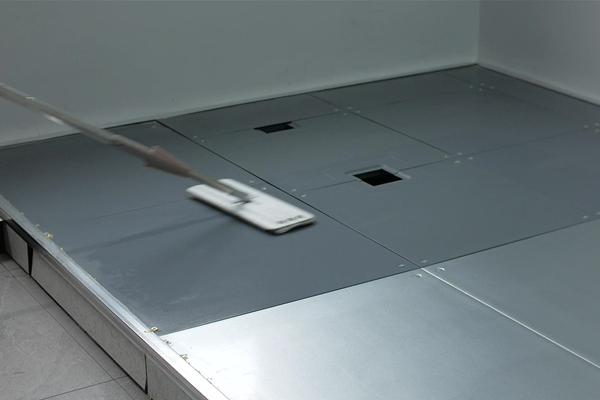Modern buildings are becoming more complex and sophisticated. They house complex equipment and systems, such as HVAC, electrical, communication, and data cabling systems. The proper installation of such systems is critical for the smooth operation of any building. The installation of these systems involves the use of wires, cables, and pipes that must be hidden and protected from damage. Elevated flooring systems are widely used to accommodate these systems in new and existing buildings.

What is Elevated Flooring System?
Elevated flooring system is a type of flooring system that is raised above the ground level. It provides a space between the building's raised floor and the ground. This space is used as a pathway to host HVAC, communication, electrical systems, and infrastructure networks. An elevated flooring system can be made of various materials, including concrete, steel, aluminum, and composite materials. The most common material used for elevated flooring systems is steel.
Benefits of Elevated Flooring Systems
Elevated flooring systems have many benefits over traditional flooring systems. Here are some reasons why you should consider installing an elevated flooring system:
1. Convenience
Elevated flooring systems provide easy access to underlying infrastructure networks. Building technicians and engineers can perform maintenance, repairs, and upgrades without having to tear up the floor. This makes elevated flooring systems an ideal choice for data centers, laboratories, and other high-tech installations.
2. Flexibility
Elevated flooring systems are modular, meaning they can be customized to meet the specific needs of your building. They can be easily adjusted to accommodate new equipment, change room configurations, or to modify the building's layout. This flexibility provides a cost-effective solution for building managers and owners.
3. Improved Air Quality
Elevated flooring systems allow improved air circulation under the floor, which improves air quality in the building's environment. This can be beneficial in buildings like hospitals, where clean air is necessary to ensure a healthy environment for patients.
4. Thermal Management
Elevated flooring systems can be designed to include air conditioning and ventilation systems. This provides an efficient method of thermal management in buildings. The systems can be designed to operate only in areas where they are needed, providing additional energy savings.
5. Increased Security
Elevated flooring systems can be designed to include security features such as access control systems, alarms sensors, and video monitoring. This enhances the building's security and makes it less vulnerable to security breaches.
Conclusion
Elevated flooring systems are a cost-effective solution for modern buildings that need to accommodate complex infrastructure networks. They provide easy access, flexibility, improved air quality, thermal management, and increased security. Elevated flooring systems are widely used in data centers, laboratories, and other high-tech installations. If you are planning to construct a new building or to upgrade your existing building's infrastructure, consider installing an elevated flooring system. It's a worthwhile investment that will pay off in the long run.